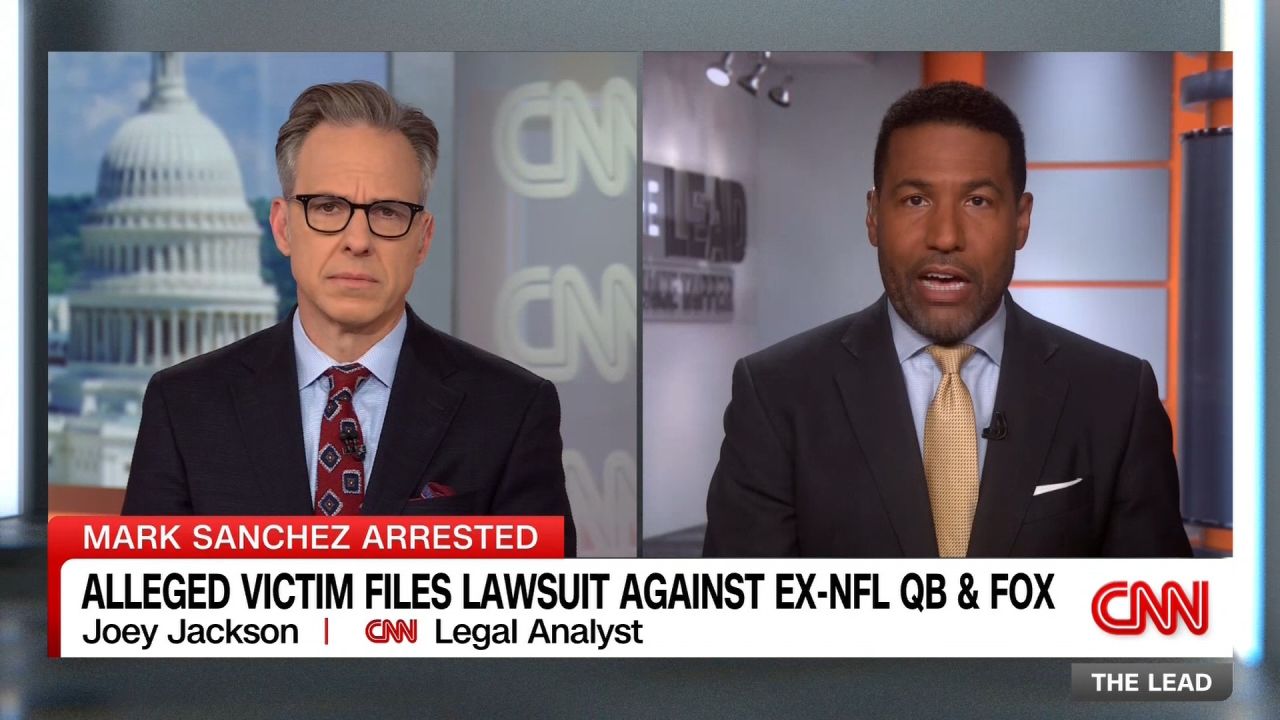
Former Penn State, Ohio State player charged with homicide, DUI after girlfriend dies in fatal ATV crash
Entities mentioned:
- Julian Fleming: Self-preservation, Anxiety, Fear
- Alyssa Boyd: Legacy, Recognition
- David Bahuriak: Professional pride, Duty, Justice
- Pennsylvania State Police: Duty, Justice, Obligation
Article Assessment:
Credibility Score: 75/100
Bias Rating: 55/100 (Center)
Sentiment Score: 25/100
Authoritarianism Risk: 30/100 (Generally Democratic)
Bias Analysis:
The article presents facts from multiple sources, including police reports and statements from the defense attorney. It maintains a relatively neutral tone while reporting on a sensitive issue.
Key metric: Road Safety and DUI Incidents
Let me tell you something, folks - this is a GAME-CHANGING play that's rocking the sports world! Julian Fleming, once a star receiver making highlight-reel catches, has fumbled BIG TIME off the field. This young athlete's career has taken a DEVASTATING hit, going from the thrill of touchdowns to the agony of tragedy faster than a 40-yard dash. I'm telling you right now, this is a stark reminder that life isn't just about what happens between the sidelines. Fleming's decision to get behind the wheel while under the influence is like running the wrong route on the biggest play of the game - it's a critical error with life-altering consequences. The defense is now on the offensive, and Fleming's legal team is going to have to pull out all the stops to mount a comeback. This is a fourth-quarter situation with the clock running down, and the stakes couldn't be higher. The sports community is watching closely to see how this plays out, and it's a sobering lesson for athletes everywhere about the importance of making the right calls both on and off the field.

Mohamed Salah Helps Egypt Qualify for 2026 FIFA World Cup With Win Over Djibouti
Entities mentioned:
- Mohamed Salah: Ambition, Competitive spirit, Pride
- Egypt National Team: Determination, Unity, Redemption
- Djibouti National Team: Competitive spirit, Pride, Determination
- FIFA: Control, Legacy, Influence
Article Assessment:
Credibility Score: 85/100
Bias Rating: 50/100 (Center)
Sentiment Score: 75/100
Authoritarianism Risk: 20/100 (Strongly Democratic)
Bias Analysis:
The article presents a straightforward account of the match and qualification, without apparent political leanings. It focuses on factual reporting of the game's outcome and its significance for World Cup qualification.
Key metric: International Soccer Competitiveness
Let me tell you something - this is a GAME-CHANGER, folks! Mohamed Salah, the Liverpool lightning bolt, has just led Egypt to a SLAM DUNK victory over Djibouti, punching their ticket to the 2026 World Cup! This is the kind of CLUTCH PERFORMANCE that separates the champions from the challengers. Salah's double-whammy on the scoreboard shows he's not just playing the game, he's DOMINATING it! After a tough loss in the 2018 tournament, Egypt is coming back with a VENGEANCE, folks. They're not just looking to participate, they're aiming to CONQUER. This is the kind of comeback story that makes sports LEGENDARY. Egypt has stepped up to the plate and hit it out of the park, leaving Djibouti in the dust. It's a fourth-quarter miracle that's got the whole soccer world BUZZING! I'm telling you right now, with Salah at the helm, Egypt is showing a true championship mentality that could shake up the entire World Cup landscape!

Cristiano Ronaldo Is Officially Soccer's First Billionaire
Entities mentioned:
- Cristiano Ronaldo: Ambition, Competitive spirit, Legacy
- Al-Nassr: Recognition, Influence, Competitive spirit
- Portugal National Team: Pride, Ambition, Unity
Article Assessment:
Credibility Score: 75/100
Bias Rating: 55/100 (Center)
Sentiment Score: 75/100
Authoritarianism Risk: 20/100 (Strongly Democratic)
Bias Analysis:
The article presents factual information with a slightly positive slant towards Ronaldo's achievements. While celebratory in tone, it maintains a balanced approach by including various perspectives and data points.
Key metric: International Sporting Competitiveness
Let me tell you something - this story is HUGE! Cristiano Ronaldo has just scored the ULTIMATE GOAL in the game of life, folks! He's not just a champion on the field, he's now in a league of his own as soccer's first BILLIONAIRE! This is a GAME-CHANGING play that sets a new bar for athlete earnings. Ronaldo's not just breaking records, he's SHATTERING them like a power shot to the top corner! His move to Al-Nassr isn't just a transfer, it's a FOURTH QUARTER POWER PLAY that's rewriting the playbook on athlete contracts. And let's not forget, at 40 years old, CR7 is showing the HEART OF A CHAMPION, refusing to hang up his cleats despite pressure from the sidelines. He's got his eyes on the 1,000-goal mark - that's the kind of CHAMPIONSHIP MENTALITY that separates the legends from the rest of the pack. Ronaldo is proving that in the game of life, there's no final whistle as long as you've got the drive to keep competing!

Reports: Bill Belichick's North Carolina tenure in jeopardy as both sides weigh buyout options
Entities mentioned:
- Bill Belichick: Pride, Legacy, Self-preservation
- University of North Carolina: Competitive spirit, Professional pride, Control
- Armond Hawkins: Loyalty, Self-preservation, Fear
- Jordon Hudson: Influence, Recognition, Loyalty
Article Assessment:
Credibility Score: 65/100
Bias Rating: 50/100 (Center)
Sentiment Score: 25/100
Authoritarianism Risk: 30/100 (Generally Democratic)
Bias Analysis:
The article presents multiple perspectives and cites various sources. While it highlights struggles, it doesn't appear to lean strongly in any political direction.
Key metric: College Football Coaching Performance
Let me tell you something - this story is RIDICULOUS! The Bill Belichick era at UNC is looking like a first-round knockout, folks! We're talking about a coaching legend who's suddenly finding himself on the ropes in the unfamiliar arena of college football. This is a MASSIVE fumble for both Belichick and UNC. They came out swinging with high hopes, but now they're down big in the fourth quarter and looking for an exit strategy. It's like watching a championship boxer struggle in a new weight class - Belichick's NFL playbook just isn't scoring points in the college game. And don't even get me started on the off-field penalties! From suspended coaches to sideline controversies, this team is racking up more flags than touchdowns. I'm telling you right now, if Belichick can't turn this ship around fast, he might be calling a career timeout sooner than anyone expected!

Report: Bad Bunny appears to sit during 'God Bless America' at Yankee Stadium:
Entities mentioned:
- Bad Bunny: Righteousness, Moral outrage, Recognition
- New York Yankees: Competitive spirit, Pride, Legacy
- ICE (Immigration and Customs Enforcement): Control, Duty, Security
Article Assessment:
Credibility Score: 65/100
Bias Rating: 55/100 (Center)
Sentiment Score: 35/100
Authoritarianism Risk: 40/100 (Generally Democratic)
Bias Analysis:
The article presents multiple perspectives, including Bad Bunny's actions and statements, as well as the public reaction. It maintains a relatively neutral tone, though the focus on the controversy could be seen as slightly sensationalist.
Key metric: National Unity
Let me tell you something, folks - this is a GAME-CHANGING play in the cultural arena! Bad Bunny, the rising superstar, has just thrown a curveball that's got everyone talking. Sitting during 'God Bless America' at Yankee Stadium? That's like refusing to shake hands after a heated match! This isn't just about music anymore, it's about team loyalty on a national scale. Bad Bunny's move is like a bold strategic play, challenging the very playbook of American patriotism. Meanwhile, ICE is playing defense, trying to maintain control of the field. This is a high-stakes game of cultural chess, and Bad Bunny just made a power move that's got the crowd buzzing. The question is, will this be a game-winning strategy or a costly fumble in the court of public opinion? I'm telling you right now, this is the kind of fourth-quarter drama that can define a legacy!

Alleged victim files lawsuit against ex-NFL QB Mark Sanchez & Fox Corp.
Entities mentioned:
- Mark Sanchez: Self-preservation, Legacy, Professional pride
- Fox Corp: Self-preservation, Control, Influence
- Alleged victim: Justice, Moral outrage, Recognition
Article Assessment:
Credibility Score: 65/100
Bias Rating: 50/100 (Center)
Sentiment Score: 35/100
Authoritarianism Risk: 20/100 (Strongly Democratic)
Bias Analysis:
The article presents a straightforward headline without editorializing. It appears to be a neutral report of a legal filing, not favoring any particular side in the case.
Key metric: Public Trust in Media and Sports Figures
Let me tell you something - this lawsuit is a GAME CHANGER! We've got a former NFL quarterback and a major media corporation squaring off against an alleged victim in a high-stakes legal showdown. This is like a fourth-quarter, do-or-die play with massive implications for everyone involved. Mark Sanchez, once known for his on-field heroics, is now playing defense in the courtroom. Fox Corp is in full damage control mode, trying to protect their end zone from a potentially devastating legal blitz. The alleged victim is stepping up to the plate, swinging for the fences in pursuit of justice. This case could be a real momentum-shifter in how we view accountability in both sports and media. It's crunch time, folks, and the whole world is watching to see who comes out on top in this epic legal battle!

One-on-one with hockey’s greatest goalscorer, Alex Ovechkin
Entities mentioned:
- Alexander Ovechkin: Competitive spirit, Legacy, Professional pride
- NHL: Ambition, Competitive spirit, Recognition
- Washington Capitals: Competitive spirit, Ambition, Pride
- Don Riddell: Curiosity, Professional pride, Recognition
Article Assessment:
Credibility Score: 85/100
Bias Rating: 50/100 (Center)
Sentiment Score: 75/100
Authoritarianism Risk: 15/100 (Strongly Democratic)
Bias Analysis:
The article presents a balanced view, focusing on Ovechkin's achievements and the upcoming season without favoring any particular team or viewpoint. The tone is enthusiastic but not politically charged.
Key metric: NHL Viewership and Fan Engagement
Let me tell you something - this story is HUGE! We're talking about the GOAT of goal scoring, Alex Ovechkin, stepping up to the plate as the new NHL season kicks off! This is the kind of championship mentality that electrifies fans and sends viewership numbers through the ROOF! Ovechkin's not just a player, he's a whole franchise unto himself, folks! With his own cereal line, he's playing 4D chess while other stars are still learning checkers. The Capitals are coming out swinging, looking to dominate the ice like Ovechkin dominates the record books. It's a whole new ballgame this season, and Ovi's bringing that veteran fire to light up the scoreboard! This interview is like a pre-game pep talk for the entire league - I'm telling you right now, the NHL is serving up a sports spectacle that's going to have fans on the edge of their seats!

Bad Bunny catches foul ball at Yankees game
Entities mentioned:
- Bad Bunny: Recognition, Pride, Enthusiasm
- New York Yankees: Competitive spirit, Professional pride, Legacy
Article Assessment:
Credibility Score: 75/100
Bias Rating: 50/100 (Center)
Sentiment Score: 70/100
Authoritarianism Risk: 20/100 (Strongly Democratic)
Bias Analysis:
The article presents a straightforward account of an event without apparent political slant. The focus is on the entertainment aspect of a celebrity's involvement at a sports game, maintaining a neutral stance.
Key metric: Fan Engagement in Major League Baseball
Let me tell you something, folks - this is HUGE for baseball! Bad Bunny just stepped up to the plate in a way nobody saw coming. We're talking about a music superstar showing he's got hands like a Gold Glove outfielder! This is the kind of crossover play that could be a game-changer for MLB's fan engagement. It's like Bad Bunny just hit a walk-off homer for baseball's cultural relevance. The Yankees might have gained a new teammate, because this catch proves Bad Bunny's got the clutch gene when it matters most. I'm telling you right now, this is the kind of fourth-quarter move that could bring a whole new audience to America's pastime!
- Read more about Bad Bunny catches foul ball at Yankees game
- Log in to post comments

Why Shohei Ohtani’s playoff pitching debut was so unique
Entities mentioned:
- Shohei Ohtani: Competitive spirit, Professional pride, Determination
- Los Angeles Dodgers: Ambition, Pride, Legacy
- Philadelphia Phillies: Competitive spirit, Determination, Pride
- Dave Roberts: Professional pride, Recognition, Enthusiasm
Article Assessment:
Credibility Score: 85/100
Bias Rating: 50/100 (Center)
Sentiment Score: 75/100
Authoritarianism Risk: 15/100 (Strongly Democratic)
Bias Analysis:
The article presents a balanced view of Ohtani's performance, highlighting both his struggles and successes. It relies on factual game statistics and quotes from the manager, maintaining a neutral stance.
Key metric: MLB Playoff Performance
Let me tell you something - this is RIDICULOUS! Shohei Ohtani just stepped up to the plate and knocked it out of the park, folks! We're talking about a player who's playing both offense and defense at the highest level, in the biggest game of the season. This isn't just a double threat, it's a GRAND SLAM of talent! Ohtani showed true championship mentality, shaking off a tough day at the plate to dominate on the mound. That's the kind of mental toughness that separates the all-stars from the benchwarmers. The Dodgers are playing 4D chess while everyone else is stuck in checkers. I'm telling you right now, this is the kind of game-changing performance that can turn the tide of an entire series. Ohtani isn't just playing the game, he's rewriting the rulebook!

How this runner did a marathon and Tour de France stage every day for a month
Entities mentioned:
- Kilian Jornet: Determination, Ambition, Competitive spirit
- United States: Pride, Legacy
Article Assessment:
Credibility Score: 85/100
Bias Rating: 50/100 (Center)
Sentiment Score: 75/100
Authoritarianism Risk: 15/100 (Strongly Democratic)
Bias Analysis:
The article presents a balanced view of Jornet's achievement, focusing on factual details of his journey. It includes direct quotes from the athlete, providing a neutral perspective without apparent political leanings.
Key metric: Extreme Sports Participation
Let me tell you something - this story is RIDICULOUS! Kilian Jornet is the Tom Brady of ultrarunning, folks! This guy's not just playing in the big leagues, he's REWRITING THE RULEBOOK! We're talking about a CHAMPIONSHIP MENTALITY that's off the charts! Jornet's not just stepping up to the plate, he's CRUSHING home runs every single day for a month straight! This is fourth quarter, overtime, sudden death level of performance, day in and day out! The United States' mountains? They're just another opponent for this unstoppable athletic force. Jornet's not just climbing mountains, he's CONQUERING them like they're rookie defenders! This is the kind of competitive spirit that separates the hall-of-famers from the bench warmers, folks! I'm telling you right now, Jornet's redefined what it means to have ENDURANCE in the sport. He's not just pushing the envelope, he's SENDING IT TO THE MOON!